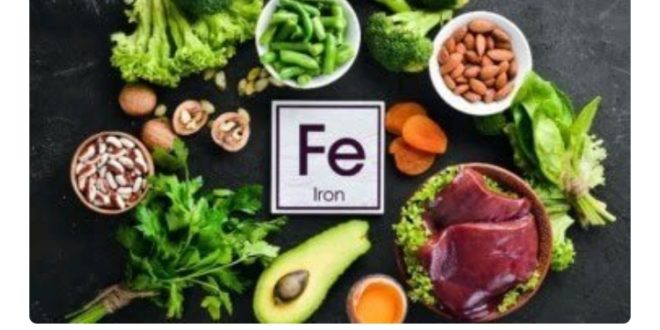The ovarian cycle controls oestrogen and progesterone levels, as well as egg production and release.
Every woman, but especially those between the ages of 12 and 40, endures a blood flow from her private area thanks to a design made by nature.
This would take place within a few days once every month. Exhaustion, bloating, and cramping are just a few of the symptoms that are frequently associated with periods.
Certain foods and drinks can make period symptoms worse. Even if you may only crave salty snacks, chocolate, and huge quantities of caffeine, these things may be causing you to feel bloated.
According to Medicalnewstoday, below four foods you should eat right after your period.
1. Iron-Rich Foods.
Women need more iron than men since they lose it during their menstrual cycle. One milligramme of iron is lost for every day when bleeding occurs. Iron deficiency is the most common nutritional deficiency in women.
In order to bring haemoglobin and ferritin levels back to normal and better prepare the body for the ensuing blood loss, it is crucial to provide the body with iron-rich foods as frequently as possible, especially after or before your period.
2. Berries.
If you wish to ease period cramps even more, fruit (especially blueberries and blackberries) can help fend off those uterus ninjas.
Berries can assist your body in balancing out the hormonal changes that take place during your period because they are high in antioxidants, vitamins, and minerals.
One of the meals with the highest antioxidant content is blueberries, which you should never skip because they reduce your chance of getting sick.
3. Legumes.
Eating foods that lower bodily inflammation can help with menstrual cramps.
These foods include fruits, vegetables, whole grains, legumes, nuts, and seeds. Studies have shown that eating a plant-based diet and being a vegetarian can both lower inflammation in the body.
Regular bean consumption can help lower blood pressure and reduce your likelihood of experiencing period cramps.
4. Ginger.
Drinking a warm cup of ginger tea can help with some menstruation problems. Because of its anti-inflammatory characteristics, ginger can ease sore muscles.
Ginger can alleviate nausea as well. There aren’t many studies that support this, but one from 2018 found that ginger significantly decreased morning sickness and vomiting during the first trimester of pregnancy.
It’s worth a go because it’s secure and affordable.
 Home Of Ghana News Ghana News, Entertainment And More
Home Of Ghana News Ghana News, Entertainment And More





